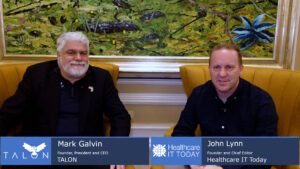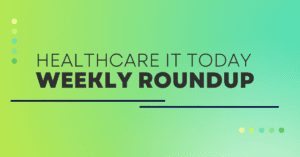One thing that’s amazing about technology is that it can help improve a wide variety of problems. Not that technology is always the answer, but technology has the ability to impact everything that’s done in healthcare. In fact, in many cases technology is the only solution that can scale to the problems of healthcare.
That’s what we found at the Co-working with Tech session at the ViVE 2024 conference. This session included a great discussion by Tanya Content, System VP of Talent at UNC Health and Russ Richmond, CEO and Co-Founder at Laudio’s platform for frontline leaders. In the session, they share a number of key insights into how UNC Health leveraged Laudio to create change, improve staff retention, and empower frontline leaders.
Here’s a quick summary of some of the key insights shared in the session with some commentary.
One of the things that stood out most was UNC Health’s commitment to their team. Many organizations pay lip service to their team, but what was particularly apparent in this session is that UNC Health had a comprehensive strategy for the people at their organization.
Their 6 pillars strategy shows how they focus on their team from recruitment to retirement. Plus, it was fascinating to hear how this culture change and commitment to their team started without technology, but then used technology to increase the impact in unique ways that we’ll highlight below.
It was amazing to hear how by prioritizing and automating frontline leaders’ work in their organization, they were able to create large scale change. This feels so different since many frontline leaders feel that tech is being done to them rather than for them.
It was also quite novel that their focus first started with nurses. We know that many nurses felt left out of implementations like the EMR. Considering all the nurse burnout, it makes sense to start there.
Laudio and UNC Health’s work to integrate all the data they need in one place is a common theme that we heard at ViVE 2024. Someone at ViVE had a shirt which said “Data is the new oil” and I think that’s pretty accurate in healthcare. Although, just like oil, you need to make sure you process it correctly for it to be useful. Frontline managers have very different needs than C-level executives which have different needs than doctors.
Of course, all the data in the world doesn’t matter if it’s not presented to staff in a usable fashion. That’s where the Laudio’s dashboard comes into play.
Plus, the data presented in the right way helped frontline managers have a much bigger picture of what’s happening with their teams and how they can better lead them.
The results kind of speak for themselves. Here are the big 3 results:
- 20% increase in nurse retention rates
- 94% of frontline managers affirm experiencing higher capacity
- $5.4 million annual savings through reduced turnover

Tanya Content highlighted the most important piece of this entire effort when she said that you have to be a “generous listener” to your frontline leaders. Doing so will help you leverage technology that helps them accomplish all they need to accomplish as leaders.
This is a fascinating example of empowering frontline leaders to address the real problems of healthcare. What are you doing at your organization? What do you think of UNC Health’s approach to the problem. Let us know in the comments or on social media.
Laudio is a proud sponsor of Healthcare Scene.
Get Fresh Healthcare & IT Stories Delivered Daily
Join thousands of your healthcare & HealthIT peers who subscribe to our daily newsletter.




